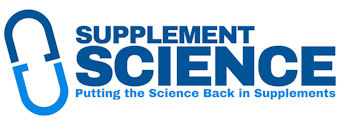Are you interested to know how a high protein diet could help you to reach your fitness goals? In this article you’re going to discover it with science-backed facts – to see if it is what you need to take your fitness progress to the next level.
What is a High Protein Diet?
Officially, it’s when a diet consists of more than 20% of protein – which is much higher in comparison to the 100gr of protein that most Americans eat daily, and the recommended daily consumption of 56gr for men and 46gr for women (source).
At first, it seems counter-intuitive to go against the official recommendations, but truth be told, there’s no damage in following high-protein diets (source).
You can go well past the 20% mark and be alright while experiencing the solid benefits that such approach can bring you. Some studies, as the ones we’ve suggested, had individuals that consumed more than 3gr of protein per every kilogram of bodyweight without problems – so you can take it easy.
Let’s check them out.
The Benefits of a High Protein Diet
When you change your diet, everything changes. Let’s see how a high protein diet could put you closer to achieving your goals by improving the way your body and mind work.
Grow More Muscle
To grow, your muscle needs protein. Simple. Studies show that there’s a link between high lean mass, higher muscle strength and a high consumption of protein (source). This diet can help you to boost your performance in any type of activity or sport.
Furthermore, another study showed that a diet that consisted of 2gr/kg of bodyweight maximized anabolic recovery, hence, boosting muscle growth (source) – it can bring you the edge you need.
Of course, protein alone is not enough. You need to follow a training that focuses on hypertrophy to achieve it. That’s when high protein will chime in to bring you solid results.
Protect Your Muscle Mass When Cutting Fat
When you cut fat, you need to create a calorific deficit. The problem is that it will cut muscle mass too, unless you eat enough protein to protect it.
To get the best results, incorporate strength training during your cut. It’ll signal to your body that you need the muscle mass, and with the help of enough protein, it will remain intact (for the most part).
Boost Your Metabolism to Burn More Fat
More protein means more satiety, but also a faster metabolism. It happens because a high-protein diet has a higher diet-induced-thermogenesis (DIT) than high-carbohydrate diets. This study proved it (source), reporting it that energy expenditure of subjects on a high-protein diet was higher by 297 kJ/d than individuals on a high-carbohydrate diet.
It’s interesting to see the powerful effects of high protein. For example, in this study the individuals went from a moderate-protein phase to a high-protein phase (over 3g/kg of protein) and also increased the energy intake, all without increasing body fat mass (source).
In summary, eat more protein to burn more fat. Simple and effective.
Recover Faster from Your Workouts and Injuries
Recovery is crucial to reach your fitness goals. We’ve seen that a high protein diet maximizes anabolic recovery – which is essential to optimize muscle growth and development – but its recovery-related benefits go beyond that. Let’s check them out.
Proper sleep is essential to recover from your workouts, and especially when you’re treating an injury. Fortunately, a high-protein approach – even in a caloric-restricted diet – improves sleep quality (source). Resulting in better and faster recovery.
Better Mood and Mind Benefits
Having a better mood while boosting your concentration, attention and alertness can help you to reach all of your goals. Even beyond fitness. That’s what a high-protein diet can bring you, and it happens because it elevates your body temperature thanks to its thermogenic effects (source).
Is Too Much Protein Dangerous?
With a great power comes a great responsibility – is too much protein dangerous at some point? For the most part, it’s not dangerous, as shown by this study where the individuals ate as much as ~2.51–3.32 g/kg for an entire year didn’t experience any negative effects on kidney, liver or blood health (source).
Even though science backs it up – you need to see how you react to it. Not all persons are the same – that’s why you should track how you feel when following the diet during the first 30 days, to draw your own conclusions.
Focus on high-quality animal protein, and overall, keep your food clean.
Of course, you need to work out to make high-protein work. Pair it with strength training or your own flavor of training and see how it works for you!
Questions? Just leave them in the comments and you’ll receive a quick answer!







